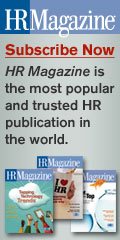
| Archives/Subscribe | Advertise | HR Matters | www.texasshrm.org |
Why all Employers should care about the National Labor Relations Act and the National Labor Relations Board Obviously, the NLRA would apply to employers who do not have a union whose employees desire to form or join one. However, the NLRA under Section 7 also protects non-management employees’ right to engage in protected "concerted activity", regardless of whether it is a union or non-union workplace. Unlike various EEOC laws, there is no minimum number of employees a covered employer must have for the NLRA to apply; generally two or more employees will suffice. Over the course of the past four years the National Labor Relations Board (NLRB), the federal agency that administers the NLRA, has been aggressively expanding its enforcement authority in regards to union elections as well as expanding the definition and scope of "concerted activity". For example, the NLRB has attempted to amend its rules regarding the union election process by providing for "quick" union elections. This rule would, among other things, dramatically shorten the time period during which a union election can be conducted and make it more difficult for employers to challenge an election. Although the "quick" election rule has been invalidated by a Federal district court for reasons related to whether the Board had a quorum when it voted on the rule, the NLRB is not prohibited from merely voting again when a quorum is clearly present. As discussed in a previous HR Matters article in June, the NLRB also published a rule requiring virtually every employer to notify its employees of their rights under the NLRA by posting a Notice. This rule was enjoined by a Federal court in May but the NLRB is currently attempting to have the injunction lifted. In addition, the NLRB has been particularly active using its authority to enforce existing law. For example, in the NLRB’s 2011 Specialty Healthcare decision it overturned more than 50 years of precedent, by allowing the creation of "micro-unions" among a small group of "certified nursing assistants" in a nursing/rehab center. Subsequent NLRB decisions allowed "micro-unions" in other small settings, such as a women’s shoe department, maintenance workers in an ice cream plant and counter employees at a rental car location. The NLRB has also initiated challenges to numerous, somewhat standard, employers’ personnel policies contending that employees’ rights under Section 7 of the NLRA were being violated. To list a few: (i) the NLRB’s acting general counsel issued three reports within the past year increasingly limiting employers’ rights to restrict employees’ social media activity; (ii) the NLRB has contended that employers’ broadly written "at-will" policies violate employees’ Section 7 rights because an employee might construe its "at-will" policy to require him to surrender his rights to engage in "concerted activity"; (iii) the NLRB’s acting general counsel issued a complaint against an employer contending its policy requiring employees to sign an acknowledgement of receipt of the Employee Handbook, which included a broadly written "at-will" policy, violated Section 7; (iv) in July, the NLRB decided that even maintaining a practice of requesting employees to keep internal investigations confidential could violate the NLRA; and (v) the NLRB made a determination (currently being challenged in court) that could allow employees to use an employer’s e-mail system to solicit union support, if the employer allowed any non-business use of its e-mail system. To address employer concerns, the NLRB has recently established a new webpage, www.nlrb.gov/concerted-activity, which is devoted to describing protected "concerted activity" and discussing NLRB cases involving non-union employers. Although there has been much discussion over the past several years concerning Congressional battles between Republicans and Democrats over labor related legislation, such as the Employee Free Choice Act, the activity described above is based on existing law and flows from the authority of the Executive Branch of government to publish rules through the regulatory process and to enforce those regulations. It is reasonable to expect following the Presidential election, either during any three month lame-duck session or if the current Administrative is elected to a second term, unrestrained and aggressive NLRB activity. Prudent HR professionals working for an employer, whether it has union or non-union work sites, should be reviewing their employee policies and practices now and developing an action plan to address such anticipated NLRB action |
P.O. Box 8058
Tyler, Texas 75711
www.texasshrm.org • info@texassshrm.org • 214-354-8740



